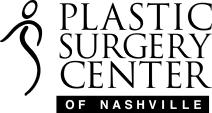Safe surgery is critical for women considering breast augmentation. Although the aesthetic results may be desirable, concerns about putting a patient’s health at risk is a legitimate factor when deciding on the surgery. Your plastic surgeon should address any questions about breast implant safety by providing current information about the technology, as well as explaining the scientific evidence supporting the benefits and the potential risks.
Because of the breast implant crisis of the early 1990s, implants have been highly scrutinized and studied to ensure their safety and effectiveness.
Breast Implant Safety Topics
Are breast implants safe? This question is commonly asked by women who consult with us about breast enhancement surgery. At PSCON, we adhere to ethical standards and provide complete information about the benefits and associated risks of implant placement.
One fact we assure our patients is the technology of breast implants have dramatically improved over the last three decades. Although some patients may be hesitant about the safety of silicone implants, several clinical studies have determined them safe and effective.
These implants have been particularly targeted as a cause of health issues, stemming from implant ruptures and leakage of interior filler material in decades past. While this was common with implants used during the 70s and early 80s, the designs have been corrected and thoroughly tested in the subsequent third, fourth and fifth generation silicone products available today.
It’s important to note that testing determined silicone to be non-reactive and inert to bodily tissues. It was never proven to cause any health concerns whatsoever. A recently completed study of 13,500 patients receiving silicone implants before 1989 found no significant increase in breast cancer or mortality, one of the larger concerns with women considering breast augmentation.
Breast Implant Safety Studies
Today’s breast implants have been the focus of research studies conducted by private and governmental agencies worldwide. The goal of these studies is to learn if breast implants are dangerous or if they have been blamed for coincidental health issues unfairly.
A variety of clinical studies make it overwhelmingly that clear breast implants do not cause any specific disease or condition. We felt it important to provide up-to-date information about these studies, so you can determine if you feel safe with breast augmentation surgery. Any additional questions you may have can we will gladly answer. Call us at 615-467-6777.
Institute of Medicine
A 1999 report issued by the National Academy Institute of Medicine, which studied more than 1.5 million women in America with silicone breast implants, concluded that neurological diseases, cancer, connective tissue disease, and other conditions or systematic complaints are no more common with these patients than with those with who do not have breast implants.
National Science Panel
This panel heard testimony from scientific, medical, and legal experts and reviewed more than 2,000 medical documents. The findings they released in 1998 state there are no identifiable links to disease and silicone implants. The panel was organized to investigate scientific data about breast implants and their possible connection to immune dysfunction and connective tissue disease.
Independent Review Group
The Chief Medical Officer of the United Kingdom assembled The Independent Review Group to study the possible health problems linked to silicone breast implants. Panel members were chosen because of their lack of financial ties to the industry and independent views. The group concluded there was no scientific evidence associated between any established connective tissue disease and silicone breast implants.
European Committee on Quality Assurance
This committee reported the following conclusions: “There are conclusive scientific – clinical, immunological, epidemiological – data, that silicone gel-filled breast implants do not cause any autoimmune nor connective tissue diseases.” It also states, “updated studies continue to show that silicone gel-filled implants do not cause cancer nor other malignant diseases.”\
Mentor
Mentor has been active for several years with studies of saline-filled and silicone implants. They have sponsored other tests from leading academic institutions, the largest being a 1992 clinical study involving 70,000 women with silicone breast implants, which had the cooperation of the USDA. The purpose of this study was to gather information about the effectiveness and safety of breast implants and earned a premarket application approval for saline implants from the FDA.
Conclusions
Because of the attention paid to breast implants and the intermittent scrutiny they have experienced for the past few decades, numerous tests and studies have made it one of the safest cosmetic surgeries today. Implants have been designed to withstand trauma with fewer ruptures and less leakage.
New techniques regarding incision and implant placement deliver natural-looking and long-lasting results. A firmer, fuller breast presence is possible today with fewer risks and fewer potential complications when performed by a qualified, board-certified plastic surgeon.
Board-Certified Plastic Surgeons
To learn the most about how safe aesthetic surgery is, it is best to consult with a board-certified plastic surgeon. Their training, experience, ethical standards, and continuing education of all advanced products and techniques make them the most qualified resource to talk to when deciding if breast implants and enhancement surgery are right for you.
Dr. Mary Gingrass and Dr. Melinda Haws are board-certified plastic surgeons who focus on cosmetic surgery and breast augmentation. They understand the reservations and concerns a woman has when contemplating the procedure. They explain the procedure in a detailed and compassionate manner which puts women at ease.
To schedule, a consultation with one of these fine surgeons call Plastic Surgery Center of Nashville today at 615-467-6777 or contact us today.
